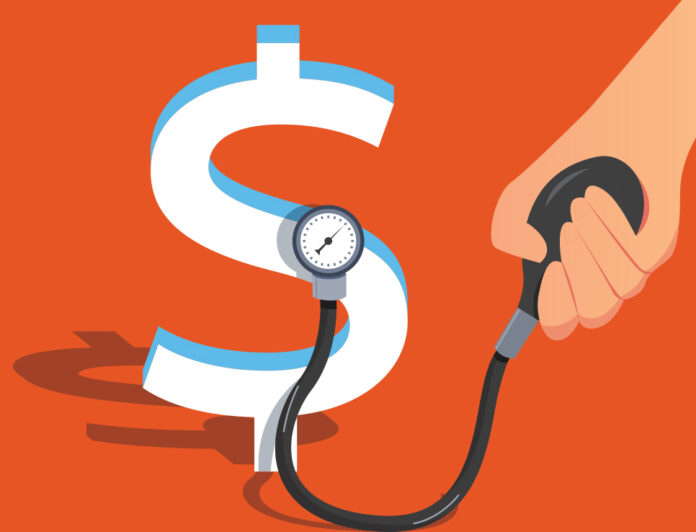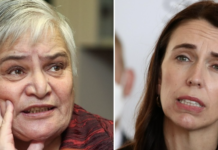The Pharmaceutical Management Agency (known as Pharmac) is a crown entity that decides, on behalf of New Zealand’s district health boards (DHBs), which medicines and pharmaceutical products are subsidised for use in the community and public hospitals (I use the words ‘medicines’ and ‘drugs’ interchangeably below). DHBs are currently responsible for the provision of community and hospital healthcare for defined geographic populations (the Government intends to abolish them on 1 July 2022).
Origins of Pharmac
Pharmac was established in 1993 by the Jim Bolger led National government as the one sensible and sustainable structure when New Zealand embarked on an ideologically driven seven years of trying unsuccessfully to run its public health system as if it was a competitive business market. It was recognised that in order to have some level of leverage in negotiations for medicines and other products with overseas pharmaceutical companies (“Big Pharma’) in this market era then a central government agency was required.
While the structures set up to create a competitive market didn’t survive the 1990s, Pharmac did because its relevance remained. It also earnt an impressive reputation for negotiating good outcomes in a sea of commercial sharks within the resources and government funding it had available. Pharmac’s success is a tribute to both those who created it such as former National Prime Minister Bill English (also former Minister of Health) and those who have led and represented it.
The hostility it received since its establishment from Big Pharma, including endeavours to undermine its effectiveness through multi-national ‘free trade’ negotiations, further enhances Pharmac’s credibility. This sustained hostility should be regarded as a badge of honour.
Criticisms
But there have been criticisms, justified and unjustified. One is the way it has communicated its prioritisation decisions. At times this has been insensitive to patient anxiety and failed to clearly explain its funding limitations sufficiently.
Another is lack of transparency over its decision-making. One has to be careful here. The strongest critical voice has been Big Pharma who sought to influence Pharmac’s internal processes. Pharmac is right to not disclose how its processes work in specific instances in order to prevent this interference and ensure commercial sensitivity.
But it is possible to share more generic information that better inform the public on what is doing and why, including its proposals for government funding. It also makes it more difficult for governments to evade public responsibility for their funding decisions.
Pharmac’s ‘necessity list’
Consequently Pharmac’s decision to release figures about its ‘Options for Investment list’ (ie, drugs Pharmac would pay for if funded to do so) earlier this week deserves applause. There are 118 proposals on the list for 73 medicines (there are more proposals than medicines because some drugs can treat multiple illnesses). If Government approved funding for all 118 proposals then the cost would be an additional $417,670,000.
Pharmac’s list has been called a ‘wish-list’. This is wrong and demeaning because of the level of clinical expertise needed to develop and scrutinise these proposals. In a live television interview on 30 April on TV3’s AM programme I described it as a necessity list because all the proposals were based on strong recommendations from clinical experts both before referral to Pharmac through a process conducted by Medsafe and then Pharmac’s own clinical experts. https://www.newshub.co.nz/home/new-zealand/2021/04/health-expert-discusses-pharmac-s-funding-option-list.html
What isn’t fully understood is that for some years the range of approved drugs Pharmac could purchase was limited. But it has expanded. As Pharmac explains in its ‘Options for Investment list’ in 2011 its range expanded to include all hospital cancer medicines, in 2012 to vaccines, and 2013 to all hospital medicines and certain haemophilia treatments. Tony Ryall was the health minister at this time and keen to expand Pharmac’s role.
In 2014 there were 27 proposals for 26 drugs. Thereafter the number of proposals increased annually while the number of drugs had more variability but there was an overall upwards trajectory.
But what Pharmac’s information also reveals is that many of these proposals were resubmitted because of government failure to fund. Of the 118 proposals 39 had been waiting for four or more years. Only 16 were new proposals. Assuming that Pharmac continues this transparency next year it should consider adding to its list the number of proposals that were able to be funded and historically the number that were first-time proposals.
Time for real government boldness through an investment lens
It is time for the Government to bite the bullet. These are medicines that should be seen as a quality of life investment that also makes good economic sense. They are approved because of their clinical efficacy in improving peoples well-being. Many of the patients who need them are receiving various forms of ‘holding’ treatment and care. Further, as their conditions further deteriorate they add to health system costs. While there isn’t a quantifiable dollar trade-off nevertheless the more we invest in these drugs the more we reduce current ‘holding needs’ spending.
By improving the quality of life for these patients we enable those who are working to be more productive at work. We also enable those who can’t work because of their illness to return to employment thereby increasing tax revenue. Again there isn’t a quantifiable trade-off but there is offsetting.
$417 million is a lot of money but should be seen in perspective. Government currently spends around $20 billion on the health system. Further, the International Monetary Fund recognises that investing in health is good for is good for economic performance of developed economies. If the IMF can see this, surely our government could as well.
More important these clinically approved medicines are a very targeted and effective investment brings a very good return for the ill along with some financial offsetting. There has to be more to the Government’s commitment to wellbeing than a framework. It needs resourcing and accepting Pharmac’s expert advice is an excellent staring point.
Health Minister Andrew Little claims that the Government’s decision to abolish DHBs is bold. But it is only as bold as the boldness of whiteboard warriors. Real boldness would be funding the backlog of un-funded medicines along with the small number of new proposals. Unlike structural change, this would substantially improve the effectiveness of the health system.
Ian Powell was Executive Director of the Association of Salaried Medical Specialists, the professional union representing senior doctors and dentists in New Zealand, for over 30 years, until December 2019. He is now a health systems, labour market, and political commentator living in the small river estuary community of Otaihanga (the place by the tide). First published at Otaihanga Second Opinion.






https://www.rnz.co.nz/news/in-depth/441649/pharmac-likely-to-end-blanket-funding-for-kids-cancer-drugs
This article sums up every single NZ government since the formation of Pharmac and the average kiwis attitude towards meds funding to a T.
That Only 100,000 out of a population of around 4 million adults says plenty .
The attitude of Andrew Little and Grant Robertson to the disclosure that a Lousy $417 million would help up to a million kiwis on long term meds funding their own meds is absolutely disgusting.
When between Sept 2017 and August 2019 an average of 2,261,544 a year unfunded meds prescriptions were dispensed at Green Cross groups pharmacies alone is a blatant disgrace.
Then we call this country a country of kindness.
We are not a country of kindness we are a country of self centred me me me and me alone individuals and to hell with anyone else.
NO ONE gives a damn unless it is them BEING DENIED ACCESS then you all scream like wounded bulls.
Read this article and Weep then apply the ethos behind it to every single one of the 110 meds waiting to be funded and the other 200 in the pre processing list.
Geoff Lye
Admin Author Under Funding of Medicines By Pharmac read this http://www.weareworthit.nz and lie down for life on May 12th.
Comments are closed.